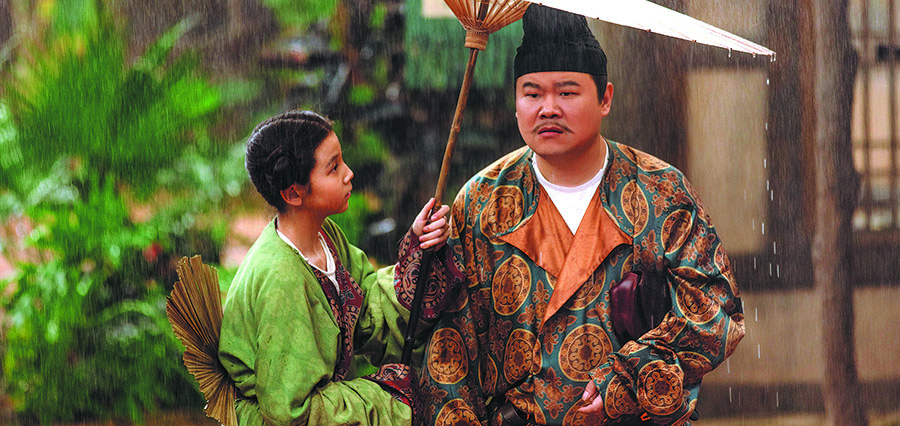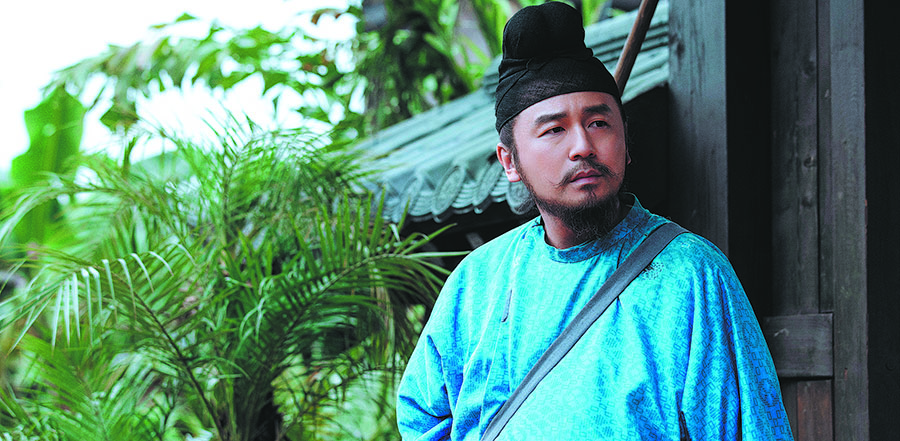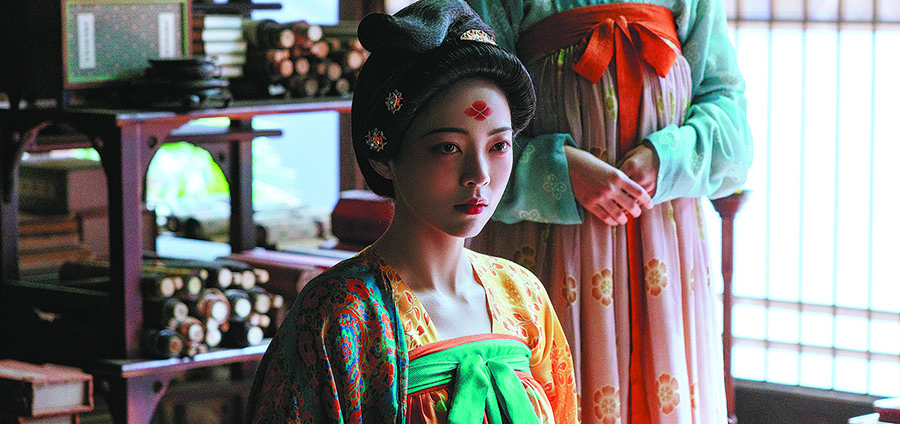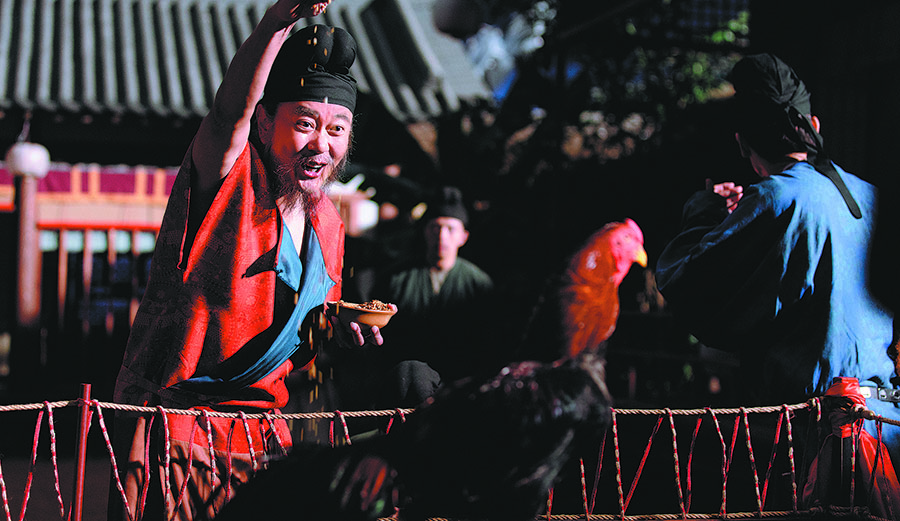As summer heats up, lychee fruit becomes one of the season's most sought-after treats. However, for people living in northern China during ancient times, it was a luxury, most time, impossible to procure.
To demonstrate his love for Yang Yuhuan, the most famous concubine of the Tang Dynasty (618-907), Emperor Xuanzong ordered officials to transport lychees from Lingnan (a region encompassing Guangdong and Hainan provinces, the Guangxi Zhuang autonomous region, and parts of Yunnan and Fujian provinces) to Chang'an, the country's then capital, now Xi'an, in Northwest China's Shaanxi province.
The journey spanned over 2,500 kilometers (from, say, Guangdong province) and took more than 20 days on horseback, yet lychees only stayed fresh for three days.
How could the officials devise a feasible method to fulfill the emperor's seemingly absurd demand? Failure meant death. This life-or-death challenge fell upon Li Shande, the fictional "lychee envoy" in award-winning writer Ma Boyong's best-selling novella The Litchi (lychee) Road.
First published in the literary magazine Harvest in 2021, the story, despite originally containing 70,000 words, was adapted into a 35-episode TV series of the same title, which aired on CCTV-8 and streamed on Tencent Video on Saturday.
Starring actor Lei Jiayin as Li, a low-ranking official, the drama follows his struggles amid a difficult life. As a widower raising a young daughter, he borrows a large sum of money to buy back the house he once pawned.
Framed by his boss and colleagues, Li, previously not daring to accept the impossible mission, is tricked into signing up for the task, unknowingly becoming the envoy assigned to transport fresh lychees as a birthday gift for the emperor's beloved concubine.
Feeling despair at the start, the resilient man with a talent for mathematics sets off on a grueling journey to investigate methods of extending the preservation of the lychees while reducing travel time. Along the way, he must overcome natural obstacles and jealous Lingnan officials sabotaging his mission.
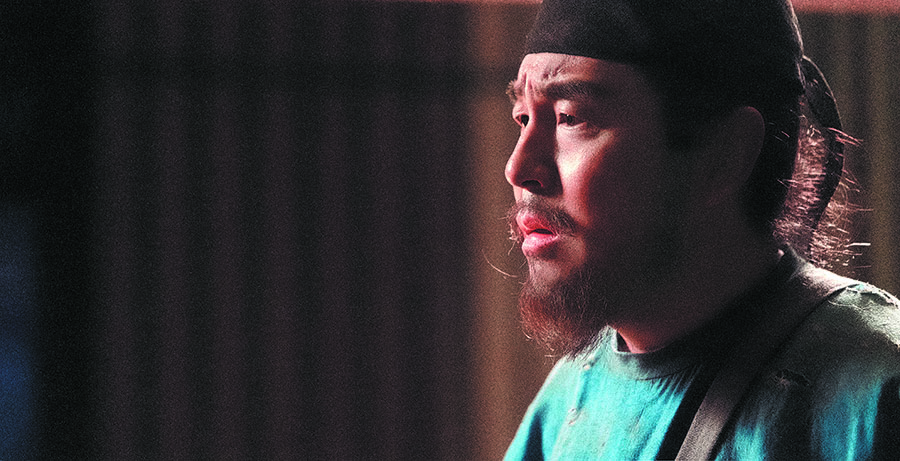
In addition to following the novel's original plotline, the drama introduces new characters, including Li's brother-in-law Zheng Ping'an, played by comedian Yue Yunpeng, who is tasked with an espionage mission to gather evidence of Lingnan's top official colluding with a powerful figure in the royal court.
Shortly before a preview screening of the drama in Beijing on June 3 in a room stacked with his books to sign for fans, Ma shared with China Daily that he felt as if he were struck with favor by the literary gods, compelled to forgo rest and write the novella in just 11 days.
"I didn't have time to think. It was a once-in-a-lifetime experience. Ideas flooded my mind non-stop. For the first time, my brain worked faster than I could type. For those few days, I was completely immersed, writing from morning till night, skipping meals and sleep. I didn't care about the daily word count limits I had set for myself. I lost track of my son's homework and canceled outside engagements. I was fully devoted to getting the story out," he recalls.
Before becoming a full-time writer, Ma worked at an international enterprise for 10 years after graduating from the University of Waikato in New Zealand. Describing himself as "an insignificant figure" back then, Ma says he was a good listener and observer of the conversations and events around him, gradually accumulating inspiration for his novels.
One example — Li sends his dirty suit to the laundry and asks for it to be returned the next day upon his arrival in Lingnan. However, people laugh at him as if he's a fool.
"The inspiration came from my experience during my first trip to Guangzhou. It was the rainy season and I had only brought two sets of clothes, thinking I could wash one and wear the other, then switch once the washed one dried. I didn't realize that was a mindset from living in the north — it didn't work like that down there," Ma explains.

Director Cao Dun, a friend of Ma's who helmed the popular historical drama The Longest Day in Chang'an, also adapted from Ma's bestselling eponymous novel, received The Litchi Road on his desk before it was officially published.
After reading it, Cao was quickly drawn to its twist-filled plot, with actor Lei, known for playing honest, good-natured but often bullied middle-aged men on screen, popping into his mind as the most suitable candidate for the protagonist.
Describing the drama as an unlikely "express delivery" adventure set in ancient China, Cao says he discussed the concept with Ma multiple times, eventually deciding to place the main settings in two regions — Chang'an and Lingnan — with the former, during the Tang Dynasty, rarely depicted in such a way in television productions.
As Lingnan's average temperature hovers above 20 Celsius throughout the year and can exceed 35 C in summer, locals tend to be laid-back with access to fruits rarely seen in the north, such as carambola, sugarcane and coconut.
In one hilarious scene, Li visits the residence of the Lingnan ruler for the first time. The high-ranking official wears a loose robe with the sleeves removed, stands barefoot, and boldly chews on a sugarcane stick. In stark contrast, another scene features a northern official, impeccably dressed and eating sugarcane in a refined manner, but struggling to swallow the coarse flesh because he doesn't know the proper way to eat it — chewing the flesh to extract the juice, then spitting out the residue.
Novelist Ma adds that the show aims to reflect the multiple facets of Lingan's local lifestyles by featuring scenes such as cockfighting, a popular sport and betting game in which two specially bred roosters fight for entertainment.
"Chinese audiences have seen Chang'an in plenty of TV shows before, but with its unique culture, people, and products, Lingnan is a fresh draw in this drama. Audiences will see how the Tang Dynasty was influenced by multiple cultures thanks to the Maritime Silk Road," says Ma.
Cao reveals that the drama also aims to showcase the inclusiveness of Tang, one of the most culturally prosperous dynasties in Chinese history. An example illustrating the dynasty's open and international temperament is that major characters in Lingnan include foreign merchants who play a pivotal role in helping Li successfully transport the lychees on time.
When asked about the show resonating with overseas audiences, Cao wants foreign viewers to relate to the characters. Though the story is set 1,300 years ago, the struggles of ordinary people working hard for a living or pursuing what they value remain universal.
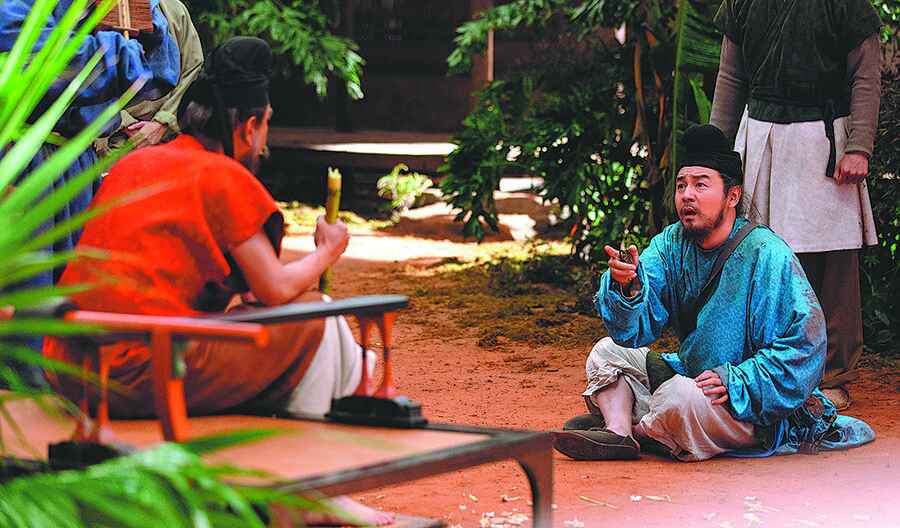
The novel's popularity has Li widely resonating with online readers who empathize with the diligent protagonist struggling to navigate complex workplace relationships under a demanding boss.
Interestingly, Ma, who also serves as a consultant, shares that he once visited the drama's filming location in Xiangshan county, Ningbo, Zhejiang province. However, the trip turned into a stressful work assignment when Director Cao immediately arranged for him to sit alone in a makeshift tent and write key plot points, as the script still wasn't flowing smoothly at the time.
When revealing the key to maintaining his passion for writing, Ma admits that drawing from his experiences drains him emotionally. After working in an international office for years and experiencing the bureaucracy, he drew inspiration from the way people would talk.
Ma adds: "Chang'an was a lot like modern international cities such as Beijing and Shanghai, filled with international people. They brought diverse cultures and came to China to chase their dreams. In that sense, Chang'an had a very modern vibe, and though the tale is set in the past, it reflects the struggles and aspirations of people in big cities today."
By Sunday, each of the drama's episodes reached an average of 6.29 percent of the country's television show subscribers, with the most viewed episode reaching 7.07 percent, surpassing all TV shows broadcast during the same prime time slot, according to CSM Media Research, an influential industry investigator.
